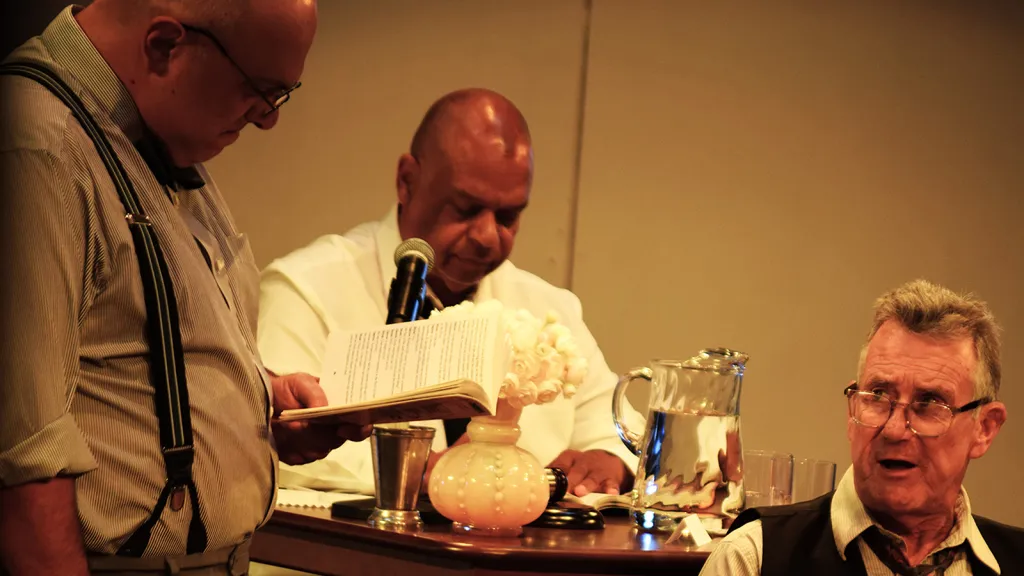Copyright Vulture

On its own, one great song probably isn’t going to save a stage musical, but it’s certainly enough to keep the hope of doing so alive. Consider the case of The Baker’s Wife, the Stephen Schwartz show based on the French film of the same name, that famously floundered through its out-of-town tryouts in 1976 and never made it to Broadway but produced the epic solo “Meadowlark.” Maybe you’ve heard Patti LuPone sing it, with a judicious ragù of commentary about playing the title character in near-empty theaters. Or you’ve heard other aspiring (or successful) beltresses step up with their own spin on Schwartz’s extended fairy-tale analogy about Geneviève deciding to leave her older husband for a handsome young man. “Meadowlark” has a propulsive and rich melody and a neat inner narrative. You’d be forgiven for thinking that the show surrounding it might be salvageable. And over the past 50 years, with various collaborators, Schwartz has tried to do just that, tinkering endlessly with the rest of the musical. The latest iteration of The Baker’s Wife comes to the Classic Stage Company via London, directed toward overwhelming twee by Gordon Greenberg. Does it finally rise to the occasion? Well, non, bien sûr. Thanks for trying. The fundamental problem is that, “Meadowlark” aside, The Baker’s Wife really isn’t an interesting musical. Schwartz’s score and Joseph Stein’s book adapt a broad French farce in a ham-fisted manner. A town in the south of France where nothing much happens is introduced by way of Judy Kuhn’s pursed-lipped Denise, who sings “Chanson,” about small-town boredom. The village gets a new baker, Aimable Castagnet (Scott Bakula, radiating easy warmth), after the death of their previous, beloved bread guy. They fall into tears over the quality of Aimable’s baguettes, but soon, his younger wife, Geneviève (Ariana DeBose), catches the eye of a handsome rogue (Kevin William Paul, a former member of The Outsiders, naturally), and he convinces her to run away. In her absence, Aimable gives up his oven, and the bickering villagers — in an eternal setup for a good punchlines that don’t arrive, the list includes a priest, a man of science, and a sexed-up mayor — must put aside their differences and reunite Aimable and Geneviève in the name of quality carbohydrates. The Baker’s Wife’s concept is a soufflé and thus mismatched to the talents of its songwriter. Schwartz tends to excel when severing up heavy stews of emotion, especially when the feelings involved are figuratively or literally biblical — as with Pippin, Wicked, and Godspell, or, on film, The Prince of Egypt and Hunchback of Notre Dame. (I don’t have much good to say about Schwartz’s new The Queen of Versailles, which just opened on Broadway, though at least it fits thematically into his fondness for glitz.) The concept itself demands a softer touch, and when Schwartz is musicalizing the humdrum happenings of southern France his work gets perfunctory fast. In that first song, you get “Every day as you do what you do every day,” rhymed immediately with “café.” For a lot of The Baker’s Wife’s score, you tend to zone out and think about how Howard Ashman, a sharper lyrical wit, really lapped him in this département in Beauty and the Beast. When Schwartz has the opportunity to lay into grandeur, as in “Meadowlark,” his writing comes alive enough to overcome klutzy imagery (Do dolphins … bark?), but that vigor also makes the song all the more incongruous among the odes to French breads. You can almost understand why The Baker’s Wife’s original producer, David Merrick, once tried to steal all the copies of it from the orchestra pit so LuPone couldn’t sing it anymore. The song has so much force that, like a comet pulled from orbit, its gravitational pull throws a light farce out of whack. The same may be said for the casting of Geneviève, here played by Ariana DeBose, one of the most supremely willing-to-commit stage performers we have. (She loves to do the thing.) She’s delivering all her lines with a thick French purr while the rest of Greenberg’s cast tends toward gentler accents. She’s also triple-underling every reference to a love her character had before Aimable, a plot point that doesn’t get much elucidation in the book, and laying gesture upon gesture as she makes her way through her big solo. The resulting performance is terribly overwrought, and more than a little fun to watch in its grasping bigness. Either way, the result is that DeBose pulls the production’s focus over to Geneviève, a character who, despite the show’s title, really should be less than central to its interests. In Act Two, after running away, Geneviève keeps getting inserted back into the action in ways that defeat the musical’s structure, whereby one couple’s breakup serves as a jumping-off point for communal reckoning. DeBose, a great dancer, and Paul perform little dream ballets. Later, she sings “Where Is the Warmth?” while he lies in bed shirtless, a choice surely meant to distract from the dreariness of the song itself. Shouldn’t we turn more of our attention to Bakula’s sweet and downtrodden baker and those quirky villagers? Admittedly, they all get short shrift in the text itself, though Greenberg, to his credit, tries to even things out by amping up the fantastical Provençal spirit of the village, with sprigs of lavender laid out on tables in Jason Sherwood’s set and members of the ensemble playing pétanque before the action begins. His supporting cast, too, puts in the effort toward filling out their lightly sketched characters — Nathan Lee Graham is particularly good as the lascivious mayor, and I’ll never complain about seeing Judy Kuhn. Greenberg is banking on atmosphere, which gets him some of the way toward a version of The Baker’s Wife that works. Getting there might require a page-one rewrite. I doubt it would be worth the effort. But hey, the show’s lumpy moral does, finally, come into view: Geneviève and Aimable’s relationship is worth fighting for. In marriage, as in yeast doughs, a little warmth helps things rise. The Baker’s Wife is at the Classic Stage Company through December 21.



